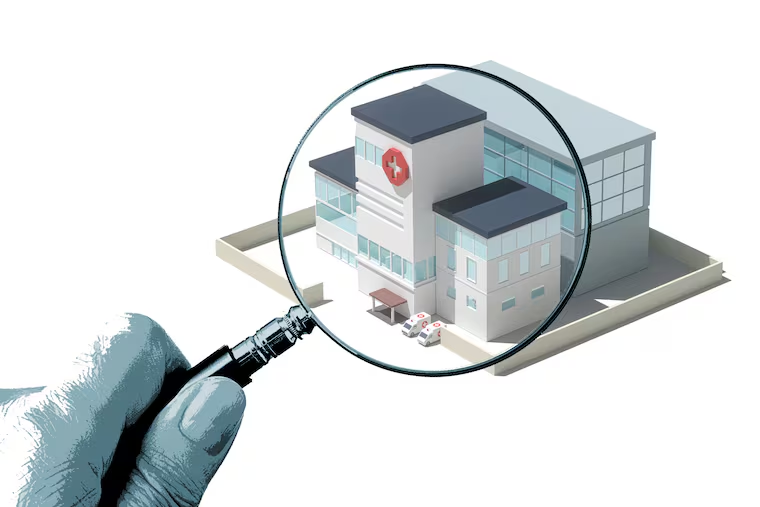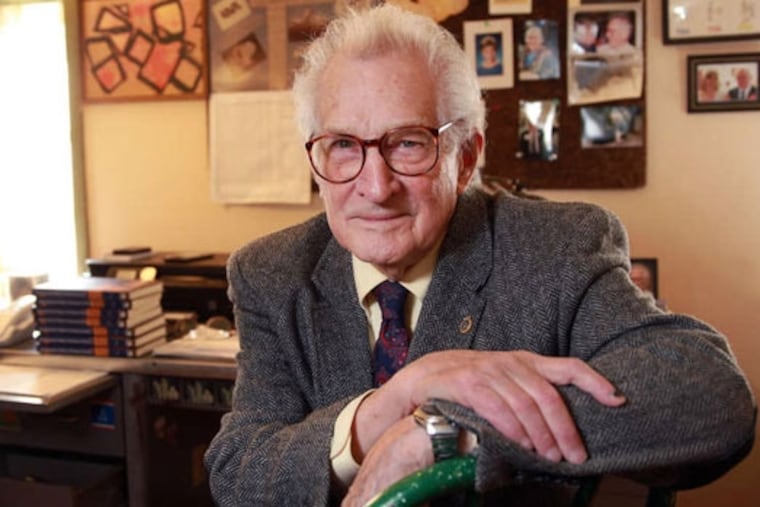Skip to contentJoanna Fong-Isariyawongse, The Conversation
Barry J. Jacobs and Julia L. Mayer, For The Inquirer
Joanna Fong-Isariyawongse, The Conversation
Joanna Fong-Isariyawongse, The Conversation
Barry J. Jacobs and Julia L. Mayer, For The Inquirer
John Lin and Jalpa Doshi, For The Inquirer
BriarRose Edwins and Hayley Goldner, For The Inquirer
Layla Bouzoubaa, The Conversation
Marcia Dunn, Associated Press
Adela Suliman and Kasha Patel, Washington Post
Marcia Dunn, Associated Press
Adela Suliman and Kasha Patel, Washington Post
Noah Robertson, Tara Copp, and Ellen Nakashima, Washington Post
David Ovalle and Cate Cadell, Washington Post
Geoff Mulvihill, Associated Press
Noah Robertson, Tara Copp, and Ellen Nakashima, Washington Post
David Ovalle and Cate Cadell, Washington Post
Geoff Mulvihill, Associated Press
{"ENV":"aFpCQGMiXUB8f1lOWjFaA3xzZEBjMmRPfGB8Cg==","CONTENT_BASE_PROD":"UwRBAnQMd0xrBUlOdwtSA3xzdE9jDHNcfGB8QHcic198Y3hPYBx3XX9gYE90MnNef2NjWmMiZE1oXXhAdCJgTXxjfEB2Mndef2NrW2AxbEx8c3xAYwxWB3xdVk53VGwBa2N7X3QLYE8=","ARC_ACCESS_TOKEN_PROD":"UwV7TVgLb0Z8BFoHdAxaTX5jc150ImRNa2NoTncydAZoY3BOdzFwBGtddE90MnQEf2NkBnQyVk9oXVIEdAtsBH5wdEB0C3hPaGN3W3QxcEJoTXhAYAtwT2hNVVx3DHxCfFpnW3QyZEJoYGgGdDF4Bn5wa1p3IW9cfF1wTnQyZE18WmdedAxsQmtaeAV0IWNcfF1nXnQyeEJ/XXwCdDJWTWtzcAdgC2dZa3B4QGALY1h8BWhAYzJ3WX9ddEB0MlFca1prX3cLYAVoYGRPYwx8CA==","GRAPHQL_KEY":"UmBFBncyYwV+cAgFYzEBA3xNfE90DHhPf1p0TnQLbEJ/XXBPdjJ4AXxafAZ3Mn9ff3B3Wncib15oXWROYwxkTWtgeEB3DH9cfHNkT2AMdE9rXVIGdwtwBXxzYEBjMWNZfGBgQHY3CAg=","GATEWAY_URL":"VQRzQnRVe19oBXdOYyJSA39geE93HHRCf2B0QGMycAB8cHRPYAx0QmtjfAd3InRNfAV0BnYiZ198c2hPdjFjWHxjZAdjC2ABf1p3WmBUbAFrY3dfYAtsBw==","GATEWAY_SLS_URL":"fFoIRHcLAU98c39CdiJ8A3xgZEB2InRMf2BoT3QcZAB/Y1oHdjJzX2haaAdjMmQFfF1kBmAyZAB8YHgHdjF/X39zUgZ0VHwFf11zXnYxYAZrY39fYzFjXA==","FEEDS_URL":"fAR/BFtVUVxTY1oDYzFSA3xga1p0HHNYfHN0QGAyc118c3wHYBxkTXxjfE92MmQBfE1SQGMMc19/c1pPdAtgTGhaf15jMngEfAV4B2BUb1h8cHRNYDFsT2tjfE50DFFffwVoTWMLbAFoYGtbYDFgT3xwfAo=","RESIZER_KEY":"U2BGBFwxbwRoBVkEWjFGA39jWk53HGdYfGB4BWMyZ1h8TVZNdiJ4AXxjUkB0IngEfGBgBXcyZAdrY1JPYzFjWXxdcEB3Mm9da2B8Tnccc1loWmROYAtsB2tjUk5jC2BNa1pkT3cRCAg=","GOOGLEANALYTICS_ID":"fn9nBFhVYwR/BVUHYzJSA3xwYAZ0DGdYfFp4T2MyZEx8cHgGdjJnWX9wdAR3ImxP","TWITTER_API_TOKEN":"VQR3BloyfEJSYEVDYDFaA3xaYE10DHwBfF1aBnYxfE98Y2BAdAx8BXxzUk1gMWwGfE10TXcyf1loXXgHdjJ/WGtjVk90HH9YfFp/WmALb1l8Y1JAYwxRX2hjcAZ0InQBa2NkQGALY1hrXVZOdjFsTGtdWV9gC39efGB3W2Axe19rWnRNdDJzWHxzXVp3IWNcaF1/XmMidAF8c3tdYAtsAWhNWVx0DHRMaE1VWmMLf1h/cHdadiF4BmtdZ1x0IXtfa2B/XHQxZ15rWntfd1RwBXxzWVp0MWxMfGBoT3RUe11rc2dbYwtgT2hjXV93IWAHfHN3WmAxZAdrXVVedCFjWWtza1tjMmRCfmN/XHchbAVoBWtdYDF7WWtzcEBgC2dZa3B8AncyWV1oTXtdd1R4TGtjf1x2MXhMa3BkCg==","GOOGLE_CLIENT_EMAIL":"UARnRV0ybwNSBWgEWj58A3xzZE90InQAf2B4T3QycAV8cHRPdBxjWHxzcE9jMnRCfE1kT3Qid1xoXWBAYFRvXXxjcEB2MntYfHNdW2MyeE98XXhOdxxRX3xNd1p2IngEfwVnWmAxb1lrYGdbdwtsTHxNd150MWwFfGB7W3YhcAdrY2dbYBx7XWtad112In9ZaGB/XHcLYAZ8BWAFYwtkTWtzWgo=","GOOGLE_PRIVATE_KEY":"VXBCBl0+Y0JVXXgEWDJaBmtzY110ImAEa2NzXncxbE18TVICdwxWBGtzeAd0HFZNf017XnQMUk18XXQGdCFgB2tjfAR3MnwEf3NSB3QcbE98TWNadzJgB3xgeE90IXBCaFpnXWAMcE1rWmdcdCJeBWhjaAJ3C3NYfE13XHQhb1x/YGNcdyF8TX9wZANgMngFaE10BXQiXk1/XWgFYzFgTGhjfE50MlIAfF1nXWMyYEJ/XXQFYAt7X39afE1gVHNffGNaAncMb1l/WnhPYyJSAXxgaE1gVG9Zf018AmMMcAV8cGAHYyJvWGgFeAJjMXxNfFp8BmAcd1x/BXdcYyFvXmtwfAJ2IllZf3B0QGAMWVx/WmtfYwxjWX9zdE9gHGwBfFp0TmMhb15/YHwDdjFzXX9wfE5gMXwBaGNWBmMydAB/YHRNYDJ/Xn5zWV12ImdYf2NdW3YyeAB+YHQCYFRkAH9wfAV3DHRPaGNgT3QLYEJ/c3NbdAxkTWhNdANgDG9cf010BnRUZEx8c3BOdBxzWHxjeAV0ImdcfE1zWnQxc1h8TXACYAx4TH5zc19jMlJPaGNjXHchc1loY3AFYzJdXH5zdE13IXtZfGBrWnchYAdoWnwDdCJvWH5jVVp0C3tYaF1wBmMhZAd8TWBAYwxZWXxwaE52MnNZfmBkBXchcEJrcHRAdiJ7WX5waANjIWABaE1zXWAceEJ/WmBOYAt4AGtwa15gHGdffwV0QGMyZEx/BWNcYzJnXWhdWgZgMX9ea1p0T3cyd198cHgCYAxjXHxzVgN2Il1efnB4B2AybAB/cGQHYzJRX3xadAd2ImNdf3BjW2Aye1h/WmRAdjJvXnxwdE90IllYfHNWQGAMcAB8XVZOdiFvX3xzWgRgHFIBfE1aA2Mic1x8WmgEYyJ7XH5wfANgMWwAfnN4B3QiUgV8XXwDdyJgTWtdY113InQFfmN0TXQiYAd8TX9edDFwT35zdAJ3ImBCf3NwA3QMeEJ8TWBAdyFwT39jfAJjMXgFfHN/XnQcZEJ8TXNfdwxwBXxdf190MlJPfE1wB3Qyc1hoYGdfdAxdXGtjYE10MnxMaGNwQHcMfEx+cGQHdCJZWXxzXVxgMXtZfHNwAmBUZ1xoYGAGdCFwT2hgYAR2Ml4AfGBrW2AcY15rXVYHYyJ0TWtaZE5jMmdcf2NjWmMyc15/cHRPdwxZXn5gaARjC29Zf3NWBXYybE1/cH9aYBx0AWgFf15jIn9Za2BkAmALZ11rcGddYAxzX3xgdE5gDG9Za3NaQHQiUV18BWddYwxRXWgFfE12MX9da3BgB2ALY19oYHdeYyJ/XXwFeE1gHGdcaGB3WnYyWV58YGNeYwx0AGgFYAVgMWddfmBoBmALcE18Y39fdFR4B39jfE50Ml5MfGN4T3ccUk9/c3QFdAt8B2tzYAR3HHhMfnN3W3QMZAd8WmtadzJwQmtde113MngEf013XGMydE1oY3BPdAtjWGtjeAN0InddfGNnXnRUbE9rY3ROdwtkQnxgZEBjC39Yf11dX3cyY19rcGQFdBxsBGtaZ1xjMnNefwVkTmAxZ1x/BWNeYwtsTWtzYAJjMnxCa3N/X2MMZ1x+Y2BNYzFjWXxaa1pgDFFefFp4QGMLY19/YHtadjF4TXxzcANjMlIFaGBkAmMMe1h+YGQDYDJ/XGhgdE5jMWNYaFpoTWMiWVlrWmAFdDJeAX5zXVpjC3tda3BnX3YxZ1l8XVoGYAxjXn5ga152MX9ef2NaT2MMUVxrYHgDYDJvX2tdWgdjC39efGB7XWMxbAFrY11bYFR/X35geE5jImQAa3NaA3Yid1hrYHtddCJ8TX9NYEB0MXAHaGNgA3ciYE9/cGgEdzJWB3xaaAR3ImBPaE13XXciVgd8Y3wHYwxZWWhdUgJjDGdYf113W3QMXVx8WngGdCJkTGtzd193Mn9Yf3BkBXQxfEJ8TWAGdDJ/WWtwYE90MngFaAVkBmMMXk1rXXRPYDFvXWgFa190ImdZfHB0TXQhbEx/YGteYyJ/XX5weAJjMntefmBkQHccYE1oYGgDdFRzWX9NWgd2Im9Za2N8T2AcXgB+cGdfYzFnXmgFfAN2IWAGfnB0BmBUc1lrYHgGdCJ3WXwFeAdgHHgAfwV4QGAcb1x/YGhPdiJ3WGgFa15gDHNef3NWT2Mxe1h/WnxAYyF7WGtzWgRjIn9ZfGB/W2MiY1h8WmNaYwtjXGtzXV52Mn9ef3B3XmMicAB8TWNcYDFvXXxgY11jIndda11aBGAyUVloBWtcdiJRXX9NVVx0MnwFfmN0TndUYE9/c3gFdxxSBH9jdE10MlZPfGNwAnQLeE1/XXdadAtwBXxzZ110DFJPfnN4BHcyZE1rWmhOdCF8QnxdVV13C2xCfGNwT2MLe1x/YGtfYzFgTH5wZAZgMXwHf3N3XGMxf1l8cHdbdDFwTWgFa15jC39daFp3XXQxYEJ/XXQDYDFnWWtaYEBjC3tYfGNjW3Yxb19rc3BPYzJ7XX5gY1t0Ml5PfFpkTWAyVgd8YGNaYwt7Xn9zWgRjIntZa3B/XmMMb1xrcHdfYzFnX2tgY15gMl1faGN0TWBUc1hrYHQCdjJjXHxgeARjIm9cf3B8A2AMY1hrWmRPYwxsAX9wf1x0MWNda2NdWmAcZ11+YHwGYDJ7WXwFa15gDHNfaGB3W3YxY19oWndfYAtvXn9wYAN2IWwBf11aTXYid1h+Y1oEYzFzXmtjXV52MXwEf018BXdUbEJ/c3tddCJ4Qnxze1x0MmQEf2NkBHcyVgdrc3gFdyFwT2tzcAN0HF5PfHNSA3dUfAR/c3tddDJnXX9Nc150MllZfF17XGALe1x8c3hAYwtwQmhNYAV0C3AEa3BgB2Mxc11/YHQFYwxZWX9wZAdgMlFZaAVkAnQicEJrc2NaYDJ3WGtzdE50MnAAfmBoBmMiXVl/c3NfdyJeBX9aaAJjC2dYa11WBGBUb15rXXhOdAxSAH5weE9jC2dZfHN0QHYicEJoTXADYBx7XH9dXVx2IWNZfFp4QGMLb1x/cHhOYFR7XGgFaAV2Ml1df1p0BWALb1x8c1oCYAt/XmtaZ1pjImAAf11aB2MidAB/WnwEYyJvXn9wYAJgHGNYfmNdW3Yhf15rYHgFYFRvWH5zXVxjC29cf3B4QGMiXV58cGNcYFRzXXxwe1t2InNfaFp7XncxcAZ/TVJNdzFsTX9jZE93HHxNaGNwA3cyXk9oTXNedAtkTWtddAN0ImQGf3N8A3QLcExoY2AEdyJwB2tdc1t0IlJCfmNkBHQxcE9/Y3BPYwtvXGtweE9jDHxCfmN8B2ALZEx8c3deYwx8TH5weAJ2Mm9ZaF13XWAcUgR8c3RAdAtnXn5jdAZgMnQGf2B8BnQhY15oXV1bdCFnXnxaYAR0MXABfGB7XHQidEJ/BWgEYDJjWH9jdE10DH9faF1WA3Yhb19/TXNeYyFwBn5gfEB0IXxCfmBoBXYhfAFrcHwDYBxzWGtwd11jDHdZfmB0TWAyUVhrY2gDYyJdXH5gdAd2MWdefHB7X2Mye11oY11eYDF/X3xwf11gDHdda2NdWmMyXVlrY1oGdiJjXnwFYEBgDHtef2NjWmAyc15rc1oDdjFkAWtdWk9gDFlff3BjWmMLeAF/XXdcdDJsTWhdUk50C3BNa3NoBXQxbAd/Y3ACdAtkQnxaa1t3HHAFaF13X3cheEJoWngFdBxkB2tze15jDHQFf2NrXnQxY1l/cGtfdwx0TXxNd110MnBNaF1rWmAyVk18Y2RAYwx3XX9zc1x0ImNYf1pkTWALcAZ8Y39ddAt/WGtweAZjMnNYf3BoT3cid11+cHRAYBxzX38FaEB3MntZf3BkA2MhZEJ/YHtcYAxzWWtjd19gHHQAfAV8QGMicEx8Wn9aYAxvXGtwZ15gVGNZfnNdWmMic1h8cGRPYzJeAX5zYARgMn9cfwVrXnYhe15/cHgGYDJ0TH5ge15jMmdea1pkBmMiZ1hoBXtaYwx7XX9wdARgMl4Aa3NZW2AMY158YHteYFRzX2gFfAd2MW9YfHBoB2Mhc15+cGADYyF7XmgFd19gDHAAf2BnXWAMY1x+cHQHYAxwBH9jfEB0HGxPf01gT3ciUgdrY3RNdwxgTGtdYAd0MlIEfHN0TnQMZAV/XWgGdDJ7WHxjdAZ0MnxCfFpkT3QLZ1hrXWQDdzJ0TX5ze1xjDHQFf3N3XHQMdEJ/cGQGdzJWB2hgaAZjMnNZaF1jXHQLY1hrWmgEdDJwBWtjYAJjMWxNf3N0TncyXk18Y3QCYyF4QmhdZARgDFFffmBrX3QxeAd/cGADYwtjXmtafE5gMnwFfHBjW3Qib15+YHQHYzJ3WWtdf19gHGQAfAV4TmAxf1h+YHQCYwtvWWgFZE9gHFZCfGBoA2AxZ1h/YGddYyJzWH9gYEBjMWNefGBkTWMMVgBrYHgCYBxZXGhjYAJgDF1ZfmNaQGMxeAB/YGdaYDJzWHxaeE9jDFlff1p8A2Mie11rcGdadyJ3XmtgfAJjIndZfmNaQGBUb19oWmQHYwxzWH9gdE50MnRMfHNSA3QidAZrXXgGdBxeBmtjc110MXgHf01kTnQxZEJ8WmgCdAxgQn9NZAVgDHxCa118TWMyfAR+YGteYwxeTGhNcE53MXtca3NwA2MLb1h+Y2RPYzJZWXwFa113MnwEfnB7X3QifEJ/YHwCYDJWTXxdY110IWdZaFp4QHcidE18cGtddDJRXWtwZE1jIlFZaAVgBmAMVgBrYH9fYBx0TWhjWgN0IlFYa2NzXGMxZABrc2NaYyJ3XnxwaE1gDFlfa1pkBHQLc19/WngFdiFnXn9we1tgHFldaAV8BXQyf1h8YHxPYAt/XGtaa15gMlFcaFp0TWALc19/YHtdYyJkAGhgZEBgMmNef2BrX2Myd1loY1oEdjJ4AHxdWVtgDFldfwV3XGBUe15/c1oEYAxZXGtaaEBjIl4BaGNWBGALYAF8BWACYDFvXWhaeE1gMXNff11gBnQMeE9rXXtbdzJ4THxNe1p0C2xMfHNnXncMZE18Y3dcdAxsBn9dfAd0ImBCf2N4TmALcAZ8Y3BNdDJWT3xdZ110Mn9YfnBrX3QMdAdrXWgDYzJkQnxwaAN3MmxNaF1jWnQyUVlrY2gCYDFnWH5wZ1tgHHtdf2BkQGMMVk18Y3BAdzJsBHxNcE9jIlFYfGNWQGMMf1l/cGteYwxdXX5zUgV0Mn9ZfwVkTmAybEJ+cGdbYyJ8THxzYAN2MXtYaAV4BmAcbAB/cGNaYyJeTGhgfANjDHddfAVoTWMxe1h/Y1ZOYAtnWWtgf1tgDGdYfHNaBWMydEJ/cHwHYwtjWXxgY1pgMmdcaAVkB2MiVgFoYHtbYBxnWWhafE1gDHddaFprX3YhZAF+cGBAdjJ8AX9jVk1gMXxCfF1dXWALZ198c1YHYAxkAH9jVgR2IWddaFp3WmAyZE9/TWNddxxSBGhja110MWAEaE14T3QLZEx8TWNedCFgBnxNe1x3C2BCaF1jW3QxcE9+Y3tadzJWBX9ae150MnRMaGBkBHcMY1h8Y2ACdCJ/WX9wdEBgDH9Za113WnQicAB/Y3dbdDFkTH9NcAd3MngHa3BoBXQcc1h8Y2NfYzJ/WH9gY1x0IWdcf3NrXGMMe1h8YGgFYAx7WX9zd1p0IWAFfnNjXWAxf1hrYGgFYDF8AXwFYAN0IlJCaGNzXHYhfAF+YHxPYFRjX38FeE5jIW9ff117X2MxY1h8YHdbYBxwTX5gfE92MWdefAVgB2Mhc1h/cHgCdyF/X35wfE9jDGQAf3BgBWALf15/TXNddjJjWHxwf1tgMntdaGBrXmAMXVh+YHQCYFRkAXxzVgRgMndffHBjXWAMd198WngDYBxRX2tdVgVjIllea2BoA3Yid15rY11cdCJWTXxjdEB3HFJMaGN4TnRUeExoTVVddFRgQmhdc1t3DFIHfmNrX3QcfAdrc2dddxxgBWtga153IWxCfE1oAncyVkxrc3QHdCJWQn9Nd150MlJCfF1wBndUYAR+c3AFdyJ0QmhNZ1p0DGxMfE1/WnQLYAd8ZgwK","BLUECONIC_ENDPOINT":"VQVnWmNVcAZVYAAEYwxWA3xzcEBgMnQAf3NaB3YyZAV8YHhPdiJzWHxjd153HHRPfF1gBnQhYAR8c3tedwx0B2tjZ1p0In9caF1gB3YifEJ8TVVadwtvX2haeAdgMWBN","BLUECONIC_STORE_ID":"U1paTVg+b0J/YAUGYFRsA3xwaEB3DGBCf2B8T3QceE98c3xAdCJ3WHxjZAZgDHRNa2BoBHQMf1x8TWRAdDJ0THxgfAd3DHAEfFpkTmMMfAV/BXxNdiJ8T3xNfAdgDHhMfwV0TXQyeAdrY3dbdDJsBw==","BLUECONIC_KEY":"UwR8Bl1Uc1hTY2MFd1VwA3xgZE9gHGQHfGNWB3ccc158c3wGYAEICA==","BLUECONIC_SECRET":"UAV3BFsLXUxrWlVYdzJaT2tdfE90HGBNfmNzXHQibE18TWdddFRgBWtdeARjMnQEaF18A3QcUk1/XXdcYzFgTGtjYAR0MntZaGBkBmMyeE9/c3hNYzJ8TGhjY193Mm9ZfHNwBQ==","AMP_AUTH_BASE_URL":"Un9ZXFwxcEJ/c1VHdyJaTWhaaAN0MXhNa2N3WncheAV/Y2RAdzFkBH5waE90InhMf11jW2MyYAVoXWAFdCJ/WX5jYAJ0HFIFf1pnW3Qif1l+c2NeYDJnXH5zf11gC2xPf1pnXGMyd1hoYGgHYAxRXX5zVV90IX9da3BnXmMid19/YGRP","AUTH0_DOMAIN":"f1pdXnQ+dAVTTVpOWhxSA39jVkBgHHRCfGBoBnYyYE98Y2QGdwxnX2tdcAdjDGRNa2B8T3ciZ198c2QHdiJwBg==","AUTH0_CLIENTID":"awRVQHcLRVh8WnRAYxxaQmtdc1x3ImAHfF1zXHQcdARoTWdbYAx4T39dcAV0MlYEf01wAncyYE9oBXtedCJwBH9NfAN3MWBNf2N8BGAMc1l+c3RPdwx/WX9dc1t0MmxCfGNwTg==","PIANO_ID":"fwRBTWMufAdrf2QEWy50A39NZE9jInhCfHNgTXQMYAF8c3RPdxxkAXxdcAo=","MIXED_CONTENT":"fE17WFtVfwZ+b39OWz5aA39gYAZ3HHddf3N0B3cMcAB/cHxAdBx3XXxzaEB0HGRNfGB/W2Acc19rXXBAdzJ3WHxwfEB2MmAHf3NjXncLf118Y3gGdAx4BXxaYAR2MWAGa2N7WnYxbE0=","VIAFOURA_SITE_UUID":"aFpJQXcyd01Tf11fXTFWA3xzYAZ2ImAAfHB8Bncyc11/Y3AHdCJ3X3wFYAZ2MnxMa2B0TmAMVk1/TXBNYDJjXHwFfE52MndZfFpoTnQcfAV8XWAFdDJRXnxNe1tjDH9efE1kTncyeAV8BWRNdjJ4Bg==","GOOGLE_CLIENT_ID":"VX9aA1pVZ15rWlVCXRxaTWhjd113MXAEa3NkTXQhcEJrXXdedDF8TWhjd1tjC3xCf1poTmMMYE1/TXQCdDFwTXxzc190HHQFfwV4TWMLf1hrWmQEdAxzWXxjeE1jC2RMf2BoQHcLcEx+Y3hPYwt4Qn9wZE5jMmNYfmBrXXQxe118YGQGdDJ3X3xwZAJgHG9YfGBgA3Qye15+c2tbdDFzXn9afAd0IXBNf3BjW3QyZ15rXXAGdyF4QmhdcE10MlZNfGN0A2AcXkJ8c3ACdCJkCA==","AUTH0_BASE_URL":"fAV/A2AMWQRVYAkCdFRwA3xgaEB3InAHfHB4B3ciZAB8c3RPdBxkBn9zcAZ3DGNYfF1VWmAxYAd8c3taYwx3XmtgZAd3DGxCa2BgBHQMfAB8c2BPYyJRWHxNc1pgVG9ZaGBjX3dUbAdoXVIK","CHARTBEAT_DOMAIN":"aARnA2NVRQdSf2tEWwxaQmtzdEB0MXAFfmNkTXQycEJoY3QCdDJ/WWtzdAd0InwI","G_OPTIMIZE_CONTAINER_ID":"a39jW2MudAdQWXhPd1RkA3xNdE1gMmABf2BkBGAybAV8BXgHdDJsBn9gaE5gNwgI","G_TAG_MANAGER_CONTAINER_ID":"fF1dBlpUDEdTf1lPdFVwA39daAR0MnwFfF1kBHQyeAZ/YGBOYAx/WX9daAo=","SF_CLIENT_SECRET":"VV14BF0hAANTXWsDXAtWA3xNYEB3DFYFf3BkQHYiZEJ/Y1JAYDJ4B3xNVk50DGQBf2B8QHYyfAd8WmROYDJ4TX9NYE1gDGBMfE10TWMiUVx/BXhPdzJ3WXxaYAd0MmwEfF1WTnYydEJ8XVYGYAxsT39zdEB3HHNZfE1gBWAMfAV8Y3BAdjFvXH9zdAZ3HHBCfHB4T3cMdE9/c3NbdCJ0AHxwYEBjDGdef3NwQGMyc1hrc3RAdFR8T3xzUgo=","G_RECAPCHA_V3_KEY":"aE1rWVwuY1hSc3NeYBxWA3xNfARgHHNZfGB0BHQcdE18WnQFdAx0QnxdeAZ0DHtZfGBkTmAyfAV8XXhAdBx4AH9jcEB0InNdfwVnW3chf19rYGhAdCJwBXxNWgd0DGBPfHNSTWAcZE18YHwFdyF4BH9gY1p0DHAHfFpkCg==","G_RECAPCHA_V2_KEY":"VHNZT1wydE1+f1kBXSFCA3xNeAZgHHtcfGB4BHQMZE9/YHxOYAxzWXxjUk1gDHgEfF1oTmAyfEJ/Y3wEdBxWBHxzZE9gMngHa2NST3QMYAd8c3NadiJgT39aZEBgMnNcfGBoTmAMc1xrXXQGYFRkTXwFe153HGRNf11oCg==","GROWTHBOOK_CLIENT_KEY":"fE1aTWM+dExQBVlEW1RGA3xzWgd3MlFYfHNwB3ccZEx8XXxPdCJ7X3xjWgZ3DGdcfGNgBHccY198c1oHdzFgTA==","SOPHI_HOSTNAME":"a1paBGAMfExTf0FcdzFaA3xzVkBgHGAEf3B8T2AMYAR8Y2hPdzJzXWhdaE9jInBNa2B8B2Ayc15oXVIK","HTL_SCRIPT":"UH9nTlgxe0NVBV4FWj50A3xjVk93HGNefHBgTnQydAR8c1JPdwxkBH9gfEB2InNefE1kB3cic1x8Y3NbYAxkQmtjWgd3MmQBa11/W3QxbExrXVJPdAx8BHwFZAdgMn9YaFprWmBUbEJ8WmdaYFRvXnxNc1p0VGwGa2NSTWMyUVx8Y3tcdDJ7XGtzZ1x0C2xN","LIVEBLOG_WS_SERVER":"UAReTlo+Z0RTBGtNXVRCA3xzZE9jDGBCf2BoBmMid158Y2RPdjJ3XmtdYE9gDHNfa1poBmMMdAd8c1ZPYAxwQmtddEBgHHgBf2N0BncifAFoWndbdCFvXQ==","SOPHI_SCRIPT":"fE17RF0xUgVrXV1BWCFsA39zfAZ0ImRPf3B8QGAcVkJ/YHRAdyJgT3xaYAZgHFZNf2BgBnYydAV8Y2AHdzJzXmhdc1t3C2AFfFpgQGBUfAF8Y3tbYyFgAWhdUk52IXwAfF1ZWnYxbE1oWn9fdCFsBHxaaE53MX9ca2NaBWBUYAVrWmNddwxgBn5jfE1gMWNca1prX2MieAF/XWNdYzF4TWgFdAJjDFlea11wCg==","STATS_WIDGET_CLIENT_ID":"U2AJA1pURQFScH9AXQtWA3xgfEB0ImdcfGB8B2AcdE98YGRAYBxwBXxzZE90HHAEf2B8B3QidEx8YGRAYDJ0AXxga1p0Imde","_id":"96585749c728037c3fd1733ad46bf0bd89a4b2d68d9a697ce9a1f38e593caed9"}























